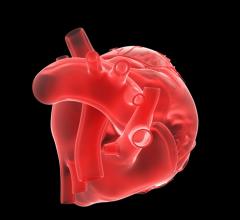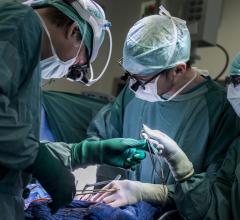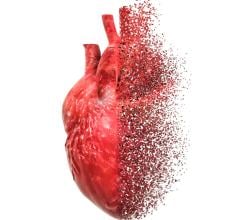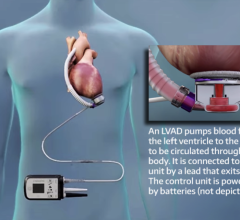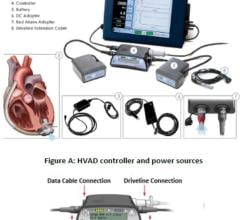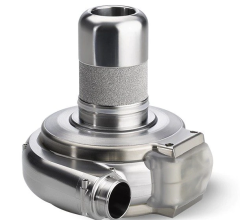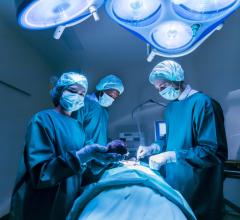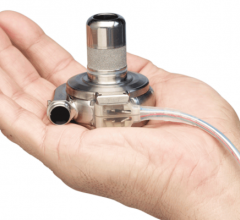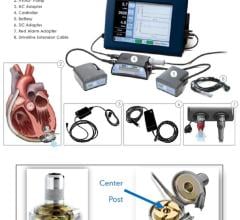January 12, 2009 - Influenza, strep throat and the common cold afflict many people during the winter months, yet viral myocarditis, a sometimes fatal infection that inflames the myocardium, often goes undiagnosed and is the most common cause of heart failure in otherwise healthy children and young adults.
Historically, viral myocarditis often leaves the surviving patients waiting for heart transplants, however, early diagnosis and new technology brings other options, says Abiomed. The company said its heart recovery products are designed to allow these young patients’ hearts the opportunity to overcome viral myocarditis by resting, recovering, and avoiding heart transplants altogether.
“With early enough detection and intervention for viral myocarditis, in the form of circulatory or cardiac assist devices, we not only preserve the lives of these patients, but we can actually allow their hearts to rest and recover function in almost every case,” said Don Botta, M.D., Yale New Haven Hospital. “This represents a huge leap forward in the treatment of this disease.”
Severe myocarditis occurs when the pumping action of the heart weakens and begins functioning at only 20 percent, making it unable to supply enough blood and oxygen to the rest of the body. When various organs do not receive enough oxygenated blood and start to malfunction, often failing one organ system at a time.
Viral myocarditis typically starts with flu-like symptoms but can worsen quickly. In many cases, children and young adults complain of difficulty in breathing, which can go on for several days. Other symptoms may also indicate viral myocarditis in children such as:
− Shortness of breath
− Elevated temperature
− Loss of appetite
− Bluish or grayish discoloration of the skin
− Chest pain
− Irregular heartbeat (arrhythmia)
The next step to battling viral myocarditis is swift and proper treatment in the hospital. Abiomed said its cardiac assist products are designed to enable the heart to rest, heal and recover by improving blood flow and/or performing the pumping function of the heart. The company points to several success stories using its technology.
Twenty-year-old Tiondra Richard was given less than a 50 percent chance of living when she was admitted to Yale New Haven Hospital in Connecticut with viral myocarditis. A heart transplant appeared imminent. Instead, doctors treated Tiondra’s acute heart failure with Abiomed’s AB5000 Ventricle and discharged her days later with her own healthy heart.
Sikander Sahota, a 13-year-old from Vancouver, British Columbia, asked his mother to take him to the hospital because his lungs were hurting and he was having difficulty breathing. Doctors at St. Paul’s in Vancouver, B.C. immediately diagnosed Sikander with viral myocarditis and brought him straight to the operating room where they inserted Abiomed’s Impella circulatory assist device. The Impella heart pump draws blood from the heart, giving heart muscle a chance to rest and recover from the virus. Within two days of insertion, the Impella device was removed and Sikander was immediately up and walking, and even given permission from his doctor to play soccer this season, the company said.
Austin Dang, 14, from Sacramento, CA was treated for a low fever and a moderate upper respiratory infection the week before he was admitted to Sutter Memorial Hospital in Sacramento with viral myocarditis. After he was admitted to the hospital, he started to experience respiratory and liver failure and was brought to the catheterization lab (cath lab). After the Abiomed AB5000 Ventricle was surgically implanted, Austin was stabilized and his vital signs began to return back to normal. After 60 days in the hospital on AB5000 support, Austin was released.
Melody Lane, 18, was told she needed a new heart after she had been seen twice in a medical clinic with flu-like symptoms and treated with antibiotics that had no effect on her condition. She was admitted to Baptist Medical Center in Little Rock, AR, where doctors discovered her heart was grossly enlarged and implanted the BVS5000 for Bi-Vad support. After 14 days of support, Melody was able to defy doctors’ original prognosis and return home with her native heart.
“Two days before Christmas, Melody was transferred to us and she was quite ill,” said John Ransom, M.D., Baptist Medical Center in Little Rock. “Initially we tried to do everything we could to maintain her hemodynamics by using medications and balloon pump support. Unfortunately her heart was really suffering and her only chance of survival was to be placed on Bi-VAD support. At her age we were determined to give her every opportunity to recover before automatically listing for transplant. The VADs provided optimal end organ perfusion and enabled her myocardium to return to its pre-implant pumping state.”
For more information: www.abiomed.com

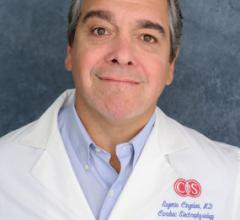
 June 19, 2024
June 19, 2024 
